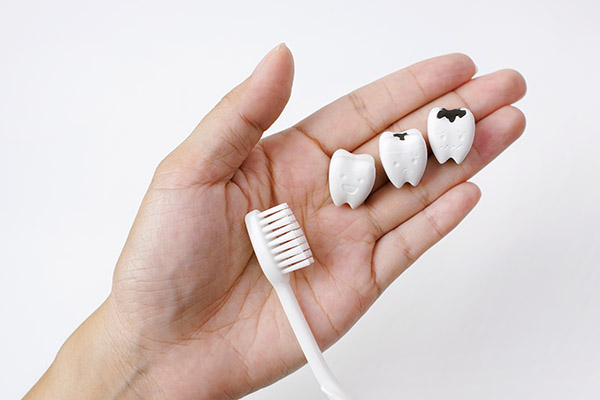 Good dental practice stresses that developing cavities is a common health issue. Cavities affect the elderly, adults, teenagers, and children. The accumulation of bacteria results in plaque. Because plaque is sticky, it keeps pouring acids on teeth. This destroys the enamel layer. When this happens, cavities appear in the form of holes in teeth.
Good dental practice stresses that developing cavities is a common health issue. Cavities affect the elderly, adults, teenagers, and children. The accumulation of bacteria results in plaque. Because plaque is sticky, it keeps pouring acids on teeth. This destroys the enamel layer. When this happens, cavities appear in the form of holes in teeth.
Causes
Cavities come from the process of tooth decay. Bacteria are present in the mouth, feeding on carbohydrates present in food. If thorough cleaning does not happen, bacteria turn into plaque. The acids from sticky plaque corrode the enamel. Then, holes or cavities develop. Without proper intervention from a dental practice, tartar or dental calculus develops.
Signs and symptoms
Every person has a different set of signs and symptoms for cavities. Some people do not feel anything at all, especially during the early stages. As the cavities develop, the patient may feel some tooth sensitivity. There might also be sudden dental pain and dental staining. Visible holes then appear on the teeth. Once there is dental pain, it is a good idea to see a dental practice.
Complications
Because tooth decay and cavities are too common, people usually dismiss them. Cavities are serious. Without early treatment, they develop complications, such as chewing problems and tooth loss. Some people also experience extreme dental pain and broken teeth. Patients should go to the nearest dental practice before pus or a tooth abscess develops.
Prevention
This is always better than cure. Good personal dental hygiene helps a lot. Working with a good dental practice elevates the level of dental health. With proper preventive measures, anyone can keep cavities at bay.
Regular dental visits
Professional dental exams and cleanings can help keep cavities from forming. Regular dental exams enable dentists to see any cavity formation. Dentists can remove plaque and tartar with a scaler. They also use fillings to treat cavities, preventing them from getting worse. Extra treatments can polish and protect teeth from bacterial adherence.
Antibacterial dental treatments
The dental practice can offer dental antibacterial treatments. These can help patients who are susceptible to cavities. Certain medical conditions weaken the body’s defense against bacterial infections. With antibacterial mouth rinses, dentists can reduce bacteria in the mouth.
Brushing with fluoride
Using fluoride toothpaste when brushing teeth can help in the fight against cavities. Brushing after every meal removes food particles and bacteria from the mouth. Fluoride-rich toothpaste controls the growth of bacteria. After brushing, traces of fluoride can protect teeth and gums from bacteria.
Eating and drinking
Sugary foods and drinks tend to speed up bacterial proliferation in the mouth. Cutting down on these products may be difficult but necessary. Vegetables and fruits stimulate the production and flow of saliva. Water, sugar-free gum, and unsweetened coffee flush out food particles from the mouth.
Your dental practice can help treat and prevent cavities
Cavities can develop into more serious dental problems. You can help prevent cavities through consistent personal dental care practices. Your dental practice can elevate your dental help through treatments and exams. Once any dental pain or stains become obvious, seeing your dentist right away can prevent any issues from getting worse. Treating and preventing cavities can ensure your optimal health.
Recent Posts
A dental practice offers a range of dental services, and one of those is the exam and cleaning. Designed to help prevent tooth decay, these services involve removing plaque and bacteria. The practice also offers patient education, so patients know how to care for the teeth while at home. These practices can help a patient…
Each dental practice has its specializations when it comes to oral care. Even so, they have one thing in common. Dental practices provide valuable brushing and flossing tips. The aim of doing so is to guide patients as they go about their personal oral hygiene practices.Plaque transforms into tartar in 24-36 hours. When it comes…
A dental practice can elevate one’s dental health. Being gifted with good teeth does not mean that they will last forever. Once permanent teeth are set in, maintaining dental health is crucial. Extending that care into one’s home makes sure that teeth and gums keep off dental problems. Here are some tips for practicing proper…


